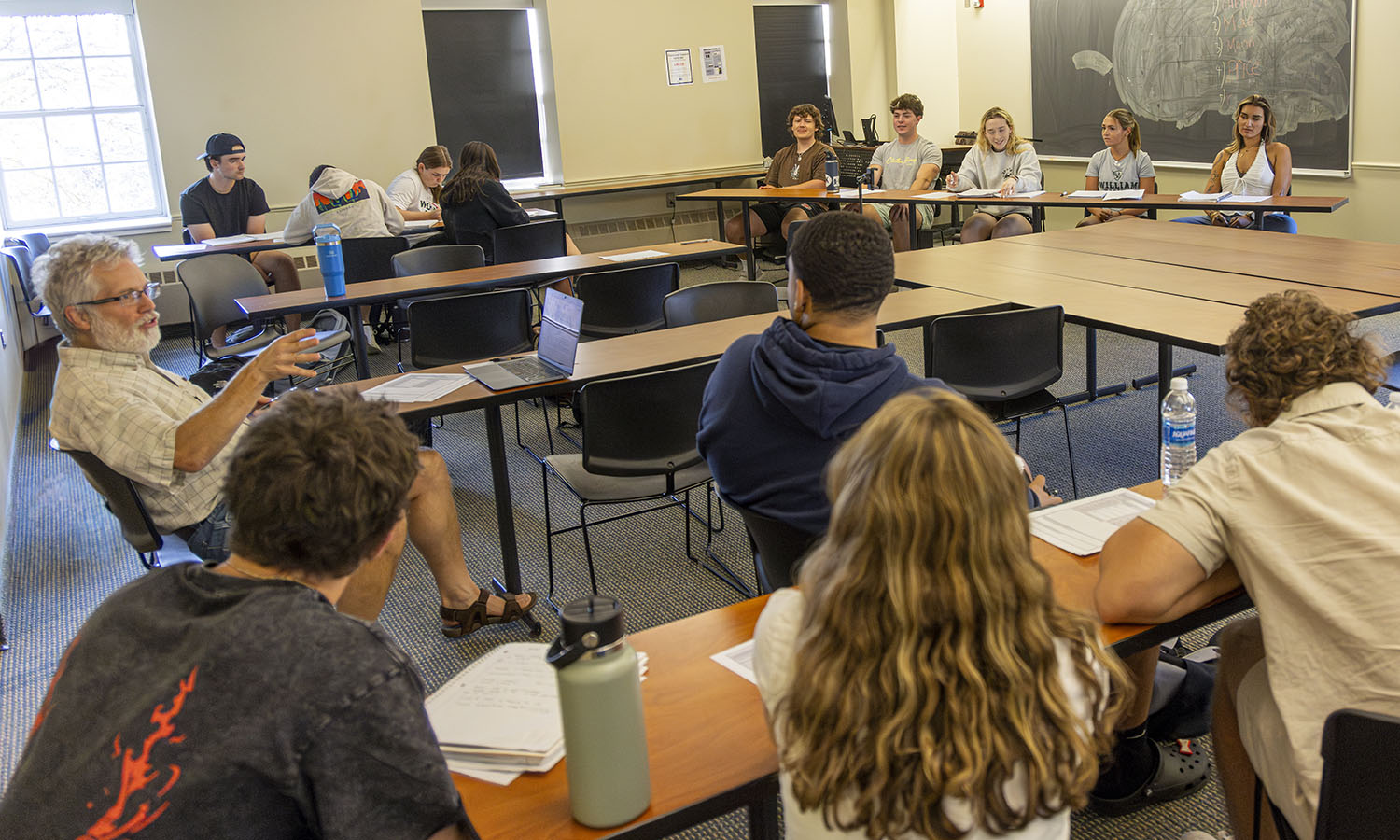
HWS News
5 November 2024 • Athletics Ethics & Athletics
Professor of Philosophy Eric Barnes explores the “Philosophy of Sport.”
With about 40 percent of the student body playing on a varsity athletic team and a good majority of campus involved in fitness, club sports or wellness initiatives, Hobart and William Smith is an environment in which the study of sports – in all its facets – is of interest to students. “Philosophy of Sport,” a course taught by Professor of Philosophy Eric Barnes, studies and analyzes athletics and sports in a deeper context, pushing students to see the ways in which participating in sports or being a spectator has philosophical significance.
Prof. Barnes introduces a group activity during "Philosophy of Sport."
When he designed the course, Barnes realized that lots of college students already enjoy talking and debating sports in their free time, so he thought they “might as well learn some intellectual lessons while they are at it.”
Barnes himself is an athlete. As an undergraduate at Hampshire College, Barnes was a competitive cyclist. He still leads group rides several times a week, ranging from 30 to more than 100 miles. On campus, he has often joined students in ultimate frisbee and he teaches a recreational athletics course on pocket billards (i.e. pool).
"Philosophy of Sport" is designed around seven case studies. Students are paired and then compete in debate-style tournaments, where the most compelling and insightful arguments are awarded. Topics of case studies include:
- What is required by the ideal of good sportsmanship?
- How important should winning be in competitive sports?
- What counts as doping and should it ever be allowed?
- When is it okay to intentionally foul in sports?
- Should we ban some sports because they are too violent?
Prof. Barnes mountain biking in the Swiss Alps.
Molly Walsh ’25, a women’s studies major and a double minor in entrepreneurship and media & society, enjoyed the discussions on the ethics of athletics. “I had only really looked at sports in a surface-level way,” says Walsh, a member of the William Smith basketball team, who believes the course advanced her debating skills and her ability to concisely articulate what she is thinking.
Barnes served as the Director of Debate for 20 years, before retiring from the program this past year. During his tenure, Barnes built a competitive team with a global reputation for critical engagement and innovation – and founded HWS Round Robin, the annual international tournament of champions which takes place on campus. Barnes' scholarly interests include moral, political and legal philosophy, applied ethics and particularly bioethics, rational choice theory, paradoxes and debate.



